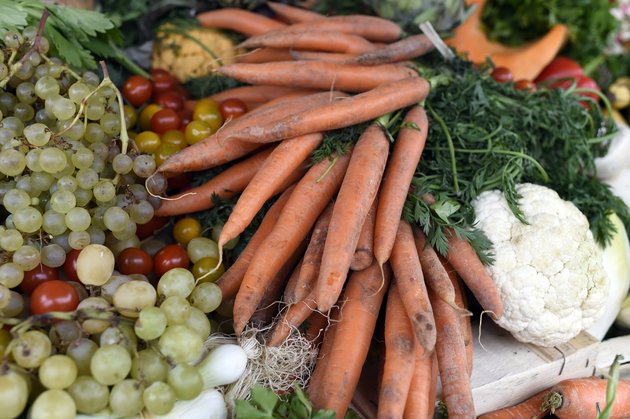FROM THE HUFFINGTON POST….
An app wants food waste to ride off into the sunset.
Food Cowboy connects for-profit food distributors who have truckloads of rejected fresh food — which typically ends up in the trash — with charities and food banks that desperately need that grub.
The problem is rooted in the U.S.’ aesthetic standards for attractive food. Many retailers, wholesalers and food service companies will reject a large and perfectly good shipment of food because a single box or carton is crushed, or fruits and vegetable are simply “ugly.”

“[My brother] is a trucker and from time to time he’d have a shipment that was rejected by the receiver because the eggplants were too dark, the carrots weren’t straight enough or what have you,” Roger Gordon, co-founder of Food Cowboy, told CNBC. “So he’d call me, and I’d go look for a church or a food bank or someone to take it to.”
Finding a charitable organization to take the food on the fly — so the producers of the food can avoid extra transport costs — was a tall order. Truckers typically unload cargo late at night when most nonprofits are closed for the day.
“There are typically 22 pallets on a truck, which is what helps keep food costs low in this country,” Gordon told The New York Times. “But if no one is going to pay the bill for all that, the easiest place to deliver it is a Dumpster.”
This act contributes to a disturbing statistic found by the Natural Resources Defense Council — that Americans trash up to 40 percent of our food supply every year, which is equivalent to $165 billion.
The problem got Gordon’s wheels turning — a platform in which retailers and nonprofits could communicate would certainly help.
And thus, Food Cowboy was born.
The app sends alerts to its current roaster of 400 charities — food banks, large kitchens, shelters and pantries — whenever a rejected shipment needs to be rescued. The app also keeps tabs on details about loading docks, refrigeration and other equipment to help with the whole coordination process, which — believe it or not — is more important than you would think.
“We once had a situation early on where a church at the end of a one-lane road agreed to take a delivery from a 53-foot-plus tractor-trailer,” Gordon told NYT. “They thought the word truck meant something like an F-150.”
There are also perks for everyone involved. Donors get a tax deduction — but pay Food Cowboy a 15 percent commission on the face value of that deduction.
Soon truckers will be able to enjoy “cowboy points” for every donation they drop off. These points can be used for coupons for free food or showers at truck stops. The company is also developing an online system in which truckers can document their mileage while making a donation.
Recipients face no charge whatsoever for the service.
Beginning this fall, Food Cowboy will donate two-thirds of its revenue — or up to $50 million a year — to Food Cowboy Foundation, which will use the funds to help charities cover the costs of retrieving donations, extend their receiving hours and purchase and install coolers at recipients’ locations so food can stay fresh longer.
Most importantly, truckers seem to like to app. Although they have to check with the food distributor before making a donation, having a place to unload the food from their trucks so that can continue on their route and pay less for gas to keep the food refrigerated, is pretty good incentive to use the app.